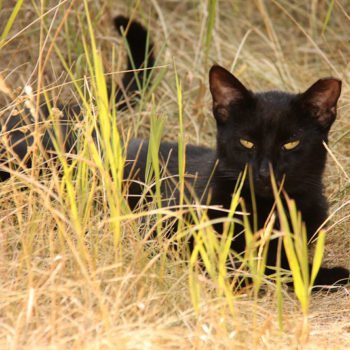A guest post from Maddie’s Shelter Medicine Program at the University of Florida professor and Million Cat Challenge co-founder Dr. Julie Levy on rabies vaccination issues in TNR and return-to-field programs.
How does your shelter respond to the concern about rabies vaccination and duration of immunity/booster vaccine requirements in your TNR/RTF programs?
Here is some general information I provide to shelters who are making community cat policy decisions:
1. All products labelled for multi-year use have been tested by USDA challenge studies for their duration of immunity following a single dose (except for the Merial recombinant vaccine).
2. That means that even the first dose of a 3-year product will protect cats for three years. The reason a traditional one-year booster is required is a safety net in case maternal antibodies interfere with response to the first vaccination. The chances that this would occur in feral cat colonies is remote, since the mother cats are very unlikely to have seen a vet for a rabies vaccine (that would induce maternal antibodies) and not been spayed at the same time.
3. There really isn’t a way I could imagine that you could visually mark cats for each of their vaccines. A microchip could be associated with vaccine records, however.
4. Florida is a rabies endemic state. TNR is flourishing as municipalities recognize that rabies (and FeLV and FIV) control is better serviced by having a stable population of non-reproducing vaccinated cats than having high cat reproduction rates and high turnover of non-vaccinated cats.
5. By way of example, TNR has been an important part of cat management in Alachua County, Florida, since 1998 (TNR about 3000 cats a year). Even though our county has one of the highest wildlife rabies rates in the state, there has not been a rabid cat reported since 2009. In fact, throughout the state of Florida, there has never been a tipped-eared cat reported with rabies. It appears that TNR really does protect cats against spillover of wildlife rabies.
6. The policy at our TNR program, Operation Catnip, is to vaccinate all cats with a 3-year vaccine. Free booster vaccines are offered to cats with tipped ears. No one monitors compliance, and not all of the cats in the TNR program have regular caregivers.
7. There is an older paper from Cornell showing 3-year duration of immunity following a single dose .
8. Below is data from a USDA challenge study of the Intervet vaccine. Four years after one dose, the immunized cats resisted challenge. They maintained adequate antibody titers (> 5) as well:

Don’t miss more innovative ideas for pet fostering, adoption, shelter medicine and stories about how pets make our lives better and happier — sign up here!

